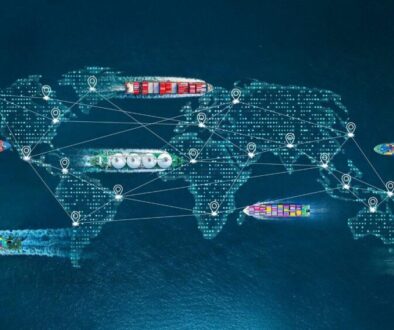Advancing Equitable Distribution of Technological Innovation: A Strategic Imperative for Arab Banks
- Equitable Tech Prosperity: Unveiling the imperative for fair distribution of tech wealth, highlighting challenges posed by Big Tech monopolies.
- Banking’s Vital Role: Illuminating the pivotal role of banks, particularly in the Arab world, as catalysts for equitable economic growth.
- Call to Action: Advocating for systemic change through regulatory intervention, investment in digital infrastructure, and collaborative initiatives, ensuring technology benefits everyone.
In the ever-evolving landscape of technological progress, the equitable distribution of its benefits emerges as a paramount challenge, resonating deeply within the purview of banking and financial institutions, particularly in the Arab world. As custodians of economic stability and facilitators of capital allocation, Arab banks are uniquely positioned to shape the trajectory of innovation-driven growth while ensuring inclusivity and social cohesion. This discourse underscores the imperative for strategic leadership and collaborative action to harness the transformative potential of technology for the collective prosperity of society.
Within the realm of corporate governance, the issue of executive compensation assumes heightened significance, exemplified by the lavish remuneration packages bestowed upon industry luminaries such as Elon Musk. Arab banks, cognizant of their pivotal role in fostering transparency and accountability, must advocate for governance frameworks that align executive incentives with long-term value creation and stakeholder interests. By promoting prudent governance practices and ethical stewardship, Arab banks can engender trust and confidence, thereby fostering a conducive environment for sustainable innovation and equitable wealth distribution.
Moreover, the ascendancy of Big Tech conglomerates underscores the need for proactive intervention to safeguard market competition and consumer welfare. Arab banks, as custodians of financial intermediation, possess the requisite expertise and influence to advocate for regulatory measures aimed at curbing monopolistic tendencies and fostering a level playing field. Collaboration between banks, regulatory authorities, and industry stakeholders is essential to develop robust regulatory frameworks that promote innovation while safeguarding against systemic risks and market distortions.
In parallel, Arab banks must seize the opportunity to leverage digital transformation as a catalyst for inclusive economic development. By investing in digital infrastructure and fintech innovation, banks can enhance financial inclusion, expand access to credit, and empower underserved communities to participate in the digital economy. Collaborative initiatives such as digital identity verification and mobile payment platforms hold immense potential to democratize financial services and catalyze entrepreneurship, thereby narrowing the socio-economic gap and fostering social mobility.
Furthermore, the establishment of public-private partnerships and ecosystem collaborations is pivotal in harnessing the transformative power of technology to address pressing societal challenges. Arab banks, as trusted financial intermediaries, can play a pivotal role in mobilizing capital towards sustainable development goals, including renewable energy, infrastructure, and healthcare. By embracing a holistic approach to sustainable finance and impact investing, banks can align their business objectives with broader societal imperatives, thereby driving positive change and fostering resilience in the face of global challenges.
In conclusion, the equitable distribution of technological innovation represents a strategic imperative for Arab banks, encapsulating the principles of inclusive growth, ethical stewardship, and social responsibility. By championing governance reforms, advocating for regulatory measures, and spearheading digital transformation initiatives, Arab banks can position themselves as catalysts for positive change, driving sustainable economic development and fostering a more prosperous and equitable society in the Arab world and beyond.



